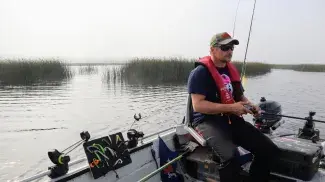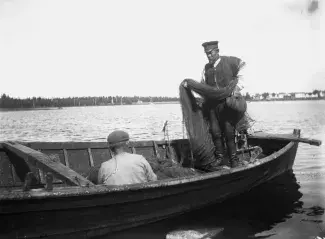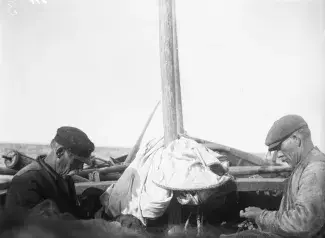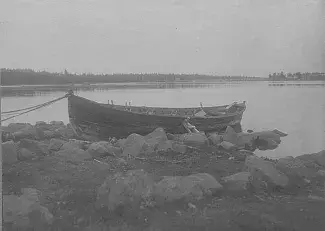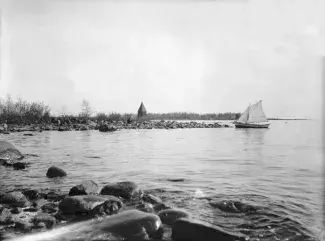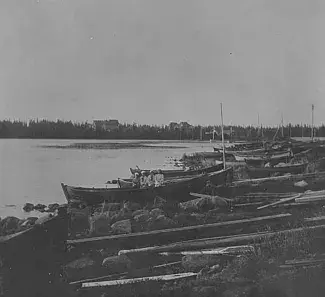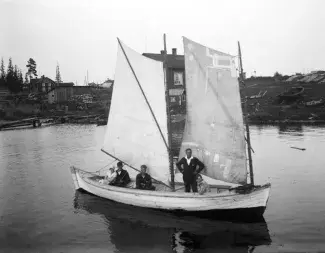Planning a Fishing Trip? Along the shores and rivers of the Raahe region, locals have always known where to find the best fishing spots. This guide will help you discover the top locations and the necessary permits so you can focus on what truly matters: relaxing and catching fish. Grab your rod and enjoy the tranquility of nature!
Fishing Spots
The most common fish species in Raahe’s waters are perch, roach, and bream. Great fishing spots in Raahe include Kanavanranta, Museonranta, Kylmäniemenlahti, and Thompson. Additionally, Haapajärvi Reservoir, located just five kilometers from Raahe’s city center, is a popular fishing area. The reservoir is rich in fish, especially large perch. Other common catches include roach, ruffe, bream, and pike.
In winter, ice fishing is best near the islands of Iso-Kraaseli and Pikku-Kraaseli. Always check the current ice conditions before heading on ice.
In Pyhäjoki, excellent fishing spots include Tervo, Elävisluoto and Tankokari Fishing Harbors.
In Siikajoki, good fishing locations can be found in Varessäikkä, Merikylä, and of course, the Siikajoki River itself.
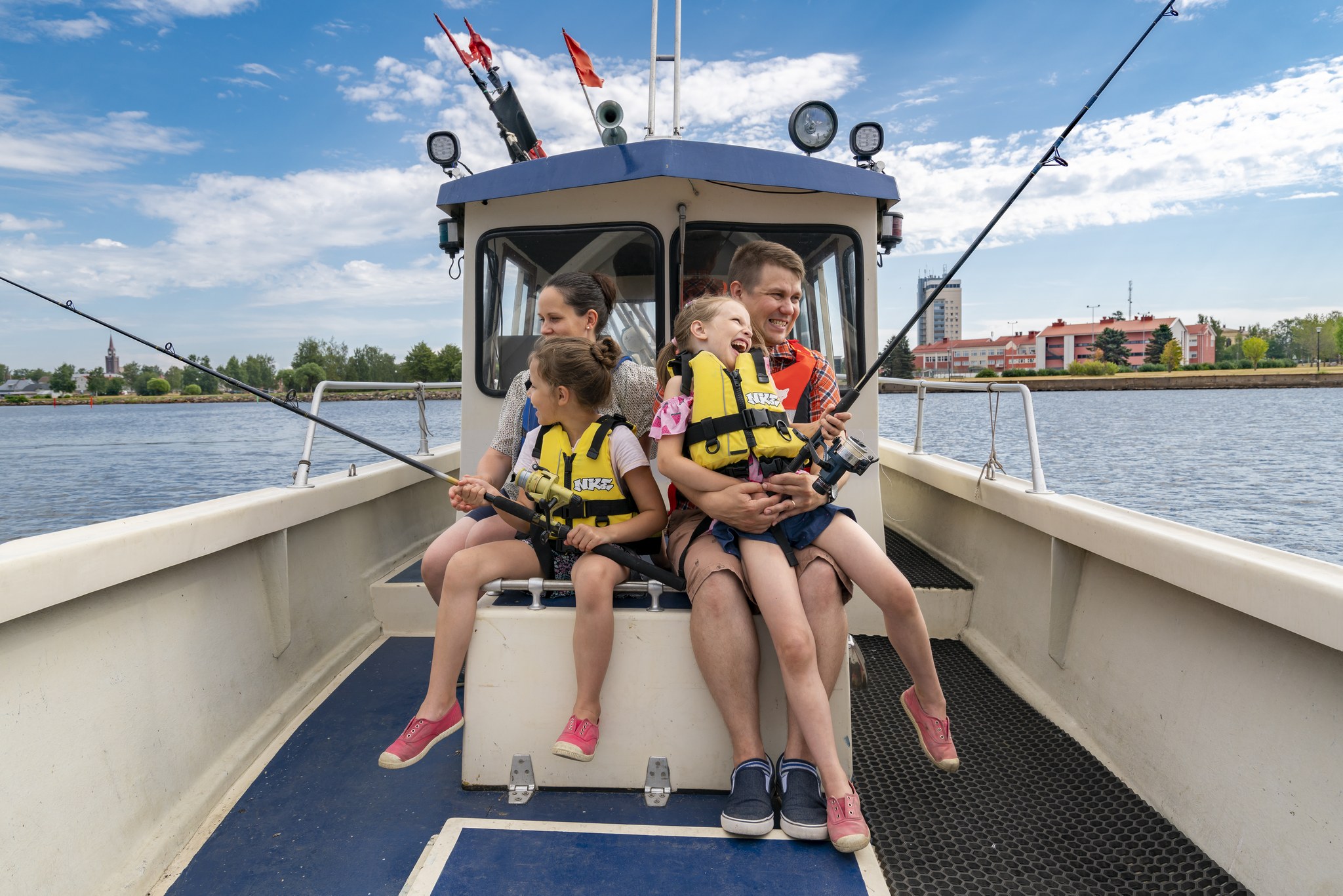
Fishing Permits
In Raahe and the surrounding areas, the national fisheries management fee is usually sufficient for fishing. This fee is required for all anglers aged 18–69, except when fishing with a single rod, using a herring rig, or ice fishing. For marine areas, a rod fishing permit is required if you fish with more than one rod and lure. In the Raahe archipelago, fishing with two or more lures, nets, or fish traps requires a permit from the Raahe Fishermen’s Association. Rod and ice fishing with a single rod are free of charge even in marine areas, but if you use multiple rods, you need both the fisheries management fee and a rod fishing permit. Some restricted areas in Raahe’s waters prohibit fishing altogether, so be sure to check local regulations before heading out.
The fisheries management fee and any additional required permits can be purchased online or by calling the Finnish Forest Administration.
| Type of Fishing | Ages 18–69 | Minors & over 69 |
| Rod fishing, ice fishing, and herring rigging (single rod) | Free | Free |
| Rod fishing, ice fishing, and herring rigging (multiple rods) | Fisheries management fee + area-specific fishing permit | Area-specific fishing permit |
| Lure fishing (one rod or lure) | Fisheries management fee | Free |
| Lure fishing (multiple rods or lures), trap fishing, and crayfishing | Fisheries management fee + area-specific fishing permit | Area-specific fishing permit |
| Fishing in special sites | Fisheries management fee + area-specific fishing permit | Area-specific fishing permit |
Seasonal Boat Moorings
The Raahe region offers plenty of boat mooring spots. Detailed information about guest harbors and mooring locations can be found in the Boater’s Services. In Pyhäjoki, mooring spots are available at Pohjankylä’s Tervo Harbor and Yppäri’s Elävisluoto Harbor. Siikajoki has small boat harbors in Merikylä, Tauvo, and Varessäikkä, with reservations handled by the Municipality of Siikajoki.
Additional Tips for Fishing Enthusiasts
MeriRaahe organizes guided fishing trips year-round. For a short self-guided fishing trip, you can rent the city’s rowboat “Smitti” for free.
Fishing events are held regularly in Raahe. In July, the Pooki Flakkaa – Raahe Maritime Festival hosts a popular fishing competition.
Seafood lovers can enjoy fresh local fish year-round at restaurants such as Fish Grill Kalastajan Grilli, Fish Restaurant Raahen Kala & Kahvila, and Restaurant Raahen Hovi.
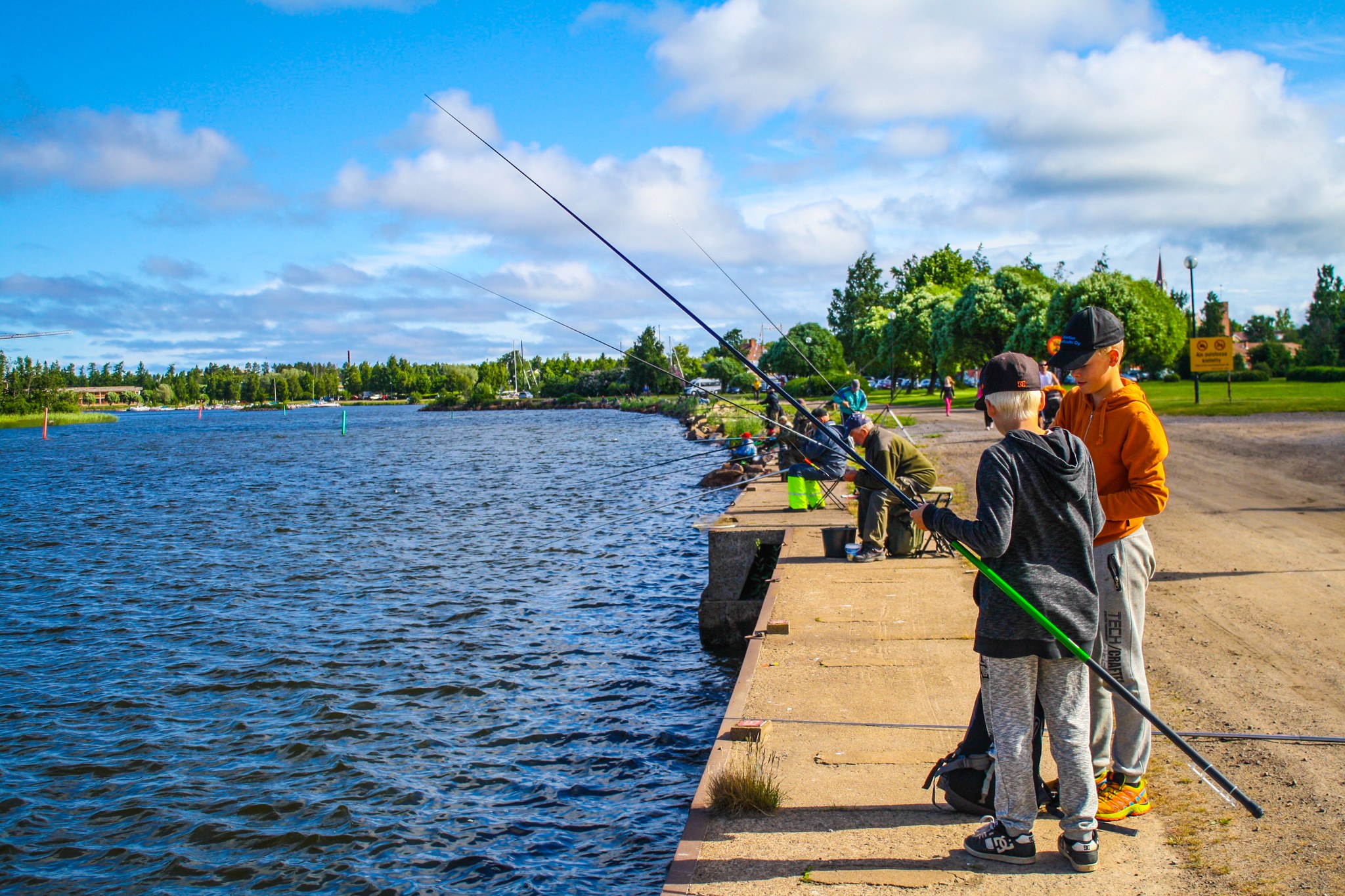
The History of Fishing in the Raahe Region
Fishing has always been an essential part of life in Raahe and its surrounding areas, including Saloinen, Siikajoki, and Pattijoki. The region's rich fish stocks and favorable conditions made it a natural fishing hub. Fishermen from Saloinen often headed to Kuljunlahti, dispersing to Raahe's Pauha's, Nahkiainen's shoal, and other shallow waters. Pattijoki fishermen used Mikonkari as their base, while Siikajoki fishermen set out from Tauvo. From Lumijoki, large fleets of boats sailed to Tasku’s small islets.
The most commonly caught fish in Raahe’s waters was herring, but pike, perch, salmon, bream, and whitefish were also plentiful. Locals called the fat-bellied spawning herring pauhakala, caught during the pauha fishing season using pauhapaatti boats. The term pauha still exists today, appearing in cultural traditions such as Pyhäjoki’s annual Pauha-Maija and Pauha-Matti awards and the Pauhalla statue. In Kaukoranta, Pyhäjoki, you can still find protected historical boathouses, net sheds, and fish storage huts, offering a glimpse into the area’s rich fishing heritage.
Whitefish fishing relied heavily on nets, fish traps, and seines. Nets were handcrafted, requiring women to spin the thread during long, dark winters. Using traditional shuttle tools, they either created new nets or repaired old ones. Skilled artisans in the village even earned extra income by producing nets at an impressive speed.
In his book Wanha Raahe (Old Town Raahe), Samuli Paulaharju mentions Orava, Läksy, and Kaarakainen as the founding fishing families of Raahe. Many of these families settled in the city in the mid-1700s, after the Great Northern War and famine years, as Raahe was being rebuilt. The city received staple town rights in 1791, significantly boosting its role in maritime trade. By the late 1800s and early 1900s, many former ocean sailors transitioned into fishing, as herring fishing became a profitable profession. The rich fishing waters off Raahe’s coast provided a steady livelihood and ensured that many families had fresh fish as a staple food.

